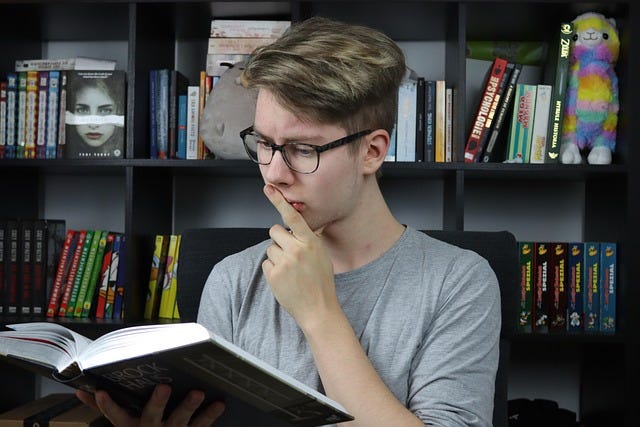When I was a child in elementary school, no one knew what ADHD was. It wasn't talked about or even recognized. But looking back, I now understand that I had it—and that it shaped my life in ways I didn’t fully understand at the time.
I remember sitting in class in the sixth grade when the teacher announced we would be reviewing all of our arithmetic. This was supposed to help us understand the parts we had struggled with earlier in the year. Arithmetic was never easy for me, and I was determined to focus this time. I told myself, “I’m going to pay attention. I’m really going to get this.” But the next thing I knew, the review was over. I had missed the entire thing. My mind had wandered off, and I found myself staring out the window, lost in a daydream.
That was the story of my school years. I wanted to do well. I tried to pay attention. But something always pulled my mind away. I didn’t have the words for it then, but today I know that this kind of wandering mind is part of attention deficit hyperactivity disorder.
The symptoms of ADHD showed up in other ways too. I was impulsive. I was anxious. I often felt low, without knowing why. I procrastinated everything. I’d sit down to do my homework and end up watching television instead, with a quiet, constant feeling of unease in the background. The harder I tried to force myself to get started, the more scattered and overwhelmed I became.
The worst part wasn’t just struggling to keep up. It felt like I was somehow lazy or not good enough. My grades didn’t reflect how bright I was. They reflected how much I was struggling inside. And no one, not my teachers or even my family, understood that my mind simply worked differently.
As I got older, those same challenges followed me. Even in adulthood, ADHD didn’t go away. I learned to work around it, to structure my day, to use my strengths. But even today, the pull toward distraction, the inner restlessness, the tendency to put things off. The ADHD is still there, just quieter.
Over the years, I’ve learned more about what ADHD really is. It’s not a flaw or a failure. It’s a difference in how the brain pays attention, handles impulses, and processes emotions. It often includes anxiety, low self-esteem, and a deep, quiet feeling of not being able to meet expectations, no matter how hard you try.
People have asked me how I was able to graduate from College, let alone get a Ph.D? Some people with ADHD are able to hyper-focus on things that capture their interest. That is what happened to me. When I was reading and studying topics in psychology and human behavior, I was totally absorbed. However, other topics, like physics and math, were of no interest, and I was lost in daydreams when attempting to study those topics.
Some people find that medication helps. Stimulants like Ritalin or Adderall can improve focus and calm the mind, especially for children and adults who are overwhelmed by the constant noise inside. But medication isn’t the whole answer. It helps some and not others. And for children especially, it’s a decision that requires thought, care, and close guidance.
Others find help in different ways, such as psychotherapy, changes in diet and sleep, regular exercise, and creating daily routines that provide structure and support. For many, learning small habits, like breaking big tasks into ones that are smaller or taking regular breaks to move around, can make a big difference.
What matters most is that people with ADHD are finally being seen and understood. We are not just “daydreamers,” “troublemakers,” or “lazy." We are often creative, curious, energetic, and full of ideas, but easily overwhelmed by noise, pressure, or too many demands at once.
If ADHD had been understood when I was a boy, I might have been spared some of the shame and struggle. But I take comfort in knowing that today’s children, and even adults who are just now learning they have ADHD, have more support, more awareness, and more tools than I ever did.
And I hope that by sharing this story, others will feel less alone. Maybe they’ll recognize themselves in these words. Maybe they’ll begin to understand that what they’ve been fighting all their lives isn’t a lack of willpower, but a different way of experiencing the world.
It has taken me a lifetime to make peace with this part of myself. I’m still learning. Still listening. Still growing.
And that’s more than enough.









Thanks for sharing. ADHD was unheard of as a child. It wasn't until soon after I graduated high school I heard about it. It wasn't until I was I'm my mid 20s until I got diagnosed.
One of my three kids has ADHD. For his sake I will not talk about his symptoms here but a lot resonates. It’s very tough on people and also their families. I feel fortunate that the condition is recognised and we can offer love and patience to him over and over again. What you’ve achieved is inspiring and I will be telling him about you and your writing on here. Blessings 🙏